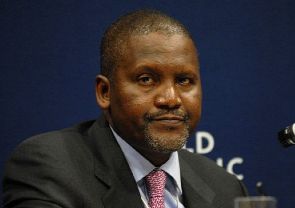Vice President Dr Mahamadu Bawumia says government is on course to ramping up the country’s growth to 6.3 percent by the end of this year underpinned by improvements in industry, agriculture and oil.
Speaking in Cape Coast, Central Region recently during the annual National Delegates Conference of the New Patriotic Party (NPP), he indicated that provisional estimates show that the trade account recorded a surplus of US$1,429 million for the first half of 2017 due to a significant increase in export earnings combined with lower imports, compared to an almost equivalent deficit of US$1,403.7 million over the same period in 2016.
“Our masterful ‘Asempa’ budget delivered by our masterful Minister of Finance, Ken Ofori Atta has set the tone this year: we promised to reduce taxes and move economic management from a focus on taxation to a focus on production and we have delivered.
Achievements
“We abolished excise duty on petroleum, abolished levies imposed on ‘Kayayei’ by local authorities, abolished the 1% Special Import Levy, abolished the 17.5% VAT/NHIL on domestic airline tickets, abolished the 17.5% VAT/NHIL on financial services, abolished the 17.5% VAT/NHIL on selected imported medicines, that are not produced locally, abolished the 5% VAT/NHIL on Real Estate sales, initiated the process to abolish duty on the importation of spare parts, reduced National Electrification Scheme Levy from 5% to 3%, reduced Public Lighting Levy from 5% to 2%, reduced special petroleum tax rate from 17.5% to 15%, replaced the 17.5 VAT/NHIL rate with a flat rate of 3 % for traders, granted Capital Gains Tax Exemption on stocks traded on the Ghana Stock Exchange or publicly held securities approved by the SEC,” he noted.
Facts and figures
The Vice President continued: “We promised to restore macroeconomic stability and we have done that in just 7 months: inflation has been reduced from 15.4% in December 2016 to 11.9% in July 2017, interest rates on the 91 day treasury bill have declined from 16.8% in December 2016 to 12.5% in July 2017, Cedi Exchange rate is relatively stable with a year to date depreciation of 3.7% against the US dollar, fiscal consolidation has been restored with the fiscal deficit on course to be reduced from 9.3% of GDP in 2016 to 6.3% of GDP at end 2017.”
Additionally, he said “the cash fiscal deficit was GH¢5.6 billion (2.7 percent of GDP) in June 2017 compared to GH¢6.7 billion (4.0 percent of GDP) recorded in the same period in 2016.
The era of reckless borrowing, which saw Ghana’s debt stock increase from GH¢9.5 billion in 2008 to GH¢122 billion in 2016 and the debt to GDP ratio from 32% to 73.1% is over.”
Debt accumulation rate
Contrary to the annual average rate of debt accumulation of 36.7 percent per annum over the last eight years, Dr Bawumia revealed that “the rate of accumulation over the last six months is only about 13.3 percent and that for the first time since 2008, Ghana’s debt burden, which is measured by the debt/GDP ratio, will be reduced from 73.1% in 2016 to a projected 71% this year.”
The Vice President insisted that “there is a significant change in direction, our re-profiling programme of domestic debt, which involved extension of tenor and issuance of longer dated bonds, has been largely successful. This has led to an extension of tenor with the issuance of the first 15-year bond, which is currently the longest dated domestic bond.
“As at last year, the longest dated domestic bond was 10 years.”
In addition, he indicated that “a second 7- year bond was issued in April 2017. The yield curve at the primary issuance of domestic bonds has also improved significantly compared to the trend in recent years.”
Interest cost savings
Following the reprofiling exercise, Dr Bawumia said “the savings from interest cost is estimated at GH¢612 million and that the government is current on its 2017 obligations to all statutory funds.”
“NHIS – we are current on our payments, GETFUND – we are current on our payments, DACF- we are current on our payments, SSNIT Contributions- we are current on our payments, economic growth at the end of 2016 was 3.5%, the lowest in 15 years.”








